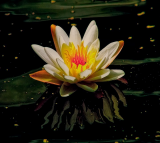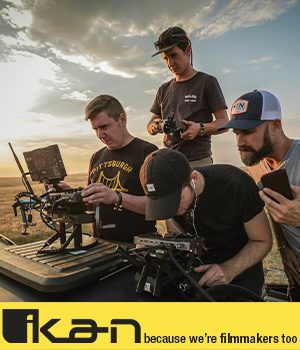- Forum
- General Discussion | Introductions | Off Topic Forum
- Photography General Discussion
- What's the proper way to change lenses?
What's the proper way to change lenses?
-
 Topic Author
Topic Author
- Amazing Grace
- Has the Hang of it
-
- Nikon D40
- Followers: 9
- Posts: 59
-
Points:
0
Post #47696
-

- Screamin Scott
- Moderator
-
- Nikon D610, Nikon D7100, Nikon D300, Olympus OMD E-M5 MarkII, Olympus OM-D E-M10, Olympus Pen E-P3 + film SLR's
- Followers: 1384
- Posts: 6868
-
Points:
40292
Post #47708
Post #47716
I have a sensor cleaning camera. I notices a few spots on my shots with sky in them. I used the cleaning option and lo and behold the spots moved. A second cleaning and they disappeared completely. I think they are just hiding though...
“Amateurs worry about equipment, professionals worry about money, masters worry about light, I just make pictures… ” ~ Vernon Trent
-

- robbie
- Apprentice
-
- D200,665nm D200,720NM D70,D7000
- Followers: 72
- Posts: 2768
-
Points:
25
-

- effron
- Newbie
- Followers: 1623
-
Points:
129640
Post #47850
robbie wrote: On the spot replies but don`t forget to turn off the camera first.
This is a good idea, however I have swapped out lenses hundreds of times with the camera on, and never had a problem from it. (I'd knock on wood, but would probably injure a knuckle or two)
Why so serious?
-

- Henry Peach
- Apprentice
-
- I currently use a 5DII or Sony Nex-3 most of the time.
- Followers: 50
- Posts: 2925
-
Points:
16
Post #47887
Don't stick anything in the camera (unless you are cleaning it) and the sensor will be fine.
Don't worry too much about dust. It's always been a problem for photographers. It gets in the lens, the camera, on the film, in the enlarger, the enlarger lens, and on the prints, so dust on the sensor is really nothing new. Except it's much, much easier to clean up dust spots in Photoshop than it is to spot a neg or individual prints. I worried about dust when I was first making the transition from film to digital, but soon just sort of forgot about it. I'm using cameras everyday and changing lenses all the time. Yes I have to spot some of my files, but it's easy. I blow out the cameras about once a month, and wet clean about once a year. My newer DSLRs have the self cleaning feature, and it does seem to work somewhat. I still have to spot some files. I'd say it almost doubles the time I can go between cleanings (blow them out every 2 months or so, and wet clean every 18 to 24 months).
To me juggling two lenses is a bigger concern when changing the lens. Sometimes there's not a good place to set one down, and I've almost dropped them before.
I don't worry about turning the camera off when I change lenses. I've heard the theory that by powering down the sensor it's less likely to attract dust. But as I understand how my Canon DSLRs work the on/off switch only disables the buttons. The sensor and most of the camera is still powered up so that it's ready to go as soon as you flip the switch.
-

- Graflex 4x5
- Lone Wolf
-
- Nikon D300
- Followers: 4
- Posts: 178
-
Points:
0
Post #47908
chasrich wrote: Thanks Scott. I didn't want to go first because I was unsure if I'm doing it correctly. It sounds like I might be though. I would add to this that I try to seek shelter instead of the sandstorm...
I have a sensor cleaning camera. I notices a few spots on my shots with sky in them. I used the cleaning option and lo and behold the spots moved. A second cleaning and they disappeared completely. I think they are just hiding though...
I have a D70 that has more nooks and crannies then an english muffin for stuff to hide in. The only way I was able to get the body clean was to hold it face down and use compressed 'air' to blow out the body.
The trick is to hold the can vertical and don't shake it. Before pointing the tube towards the mirror, give a couple short bursts to clear any fluid that may be in the tube.
No matter how fast I go, there's always someone slower in front of me.
- Forum
- General Discussion | Introductions | Off Topic Forum
- Photography General Discussion
- What's the proper way to change lenses?
Latest Reviews
The Olympus Pen E-P7 is an affordable micro four thirds mirrorless camera with 4K video capabilities, a 20.3MP sensor, and 121 focus points, making it a solid entry-level camera for beginners.
The Panasonic G9 II is a 25.2-megapixel micro four thirds camera with numerous features that make it punch out of its weight class, like 779 AF points, 5.8K video, and weather sealing.
The Fujifilm XT5 is a 40MP mirrorless camera capable of 6.2K video at 30p. With those specs, it’s an ideal choice for photographers needing a camera to pull double duty for imaging and video.
The Canon EOS R100 is an entry-level mirrorless camera introduced in 2023. But just because it’s an entry-level camera doesn’t mean it’s a bare-bones camera. Find out why in this review!
Forum Top Posters
-
1Scotty 8 posts
-
2TCav 4 posts
-
3CharleyL 4 posts
-
4Colorado Mike 3 posts
-
5Garbo 3 posts
-
6J Photo Man 3 posts
-
7Petroguy 2 posts
-
8Fess Walker 2 posts
-
9Hassner 2 posts
-
10MYoung 2 posts
Latest Articles
Auto white balance is a camera setting that adjusts the color temperature of your images automatically. It often works well, but you should know a few tips to fix problems it might cause, too.
The Canon EOS 5D Mark III might be more than a decade old, but it still has the chops to be a quality camera for photographers in 2024.
Starting a photography business can be a daunting task. There is a lot to do, and many mistakes can be made. This guide helps you minimize mistakes and maximize your success!
The Canon 6D Mark II might be an older DSLR, but that doesn’t mean it isn’t a good option for 2024. In fact, this budget-friendly camera is a powerhouse for stills and videos.
In this guide to the bokeh effect, you’ll learn what bokeh is and the factors involved in creating it. You’ll also explore some beautiful example images to spark your creativity with bokeh!
Upgrade your kit in 2024 with the best intermediate camera on the market! The question is, what camera fits the bill? We’ve got three top options for you to choose from in this buyer’s guide.
The best photography jobs right now are a mix of tried-and-true gigs like wedding photography and new jobs highlighting AI’s capabilities, travel, and videography.
The Olympus Pen E-P7 is an affordable micro four thirds mirrorless camera with 4K video capabilities, a 20.3MP sensor, and 121 focus points, making it a solid entry-level camera for beginners.














